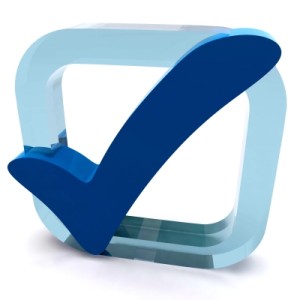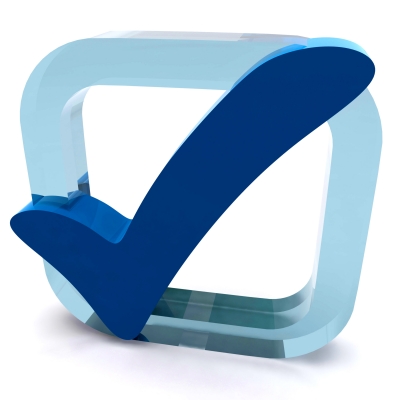 The Philippine Senate recently ratified two resolutions related to the aviation industry: the country’s accession to the Montreal Convention 1999 (MC99), the single, universal treaty designed to govern airline liability around the world; and another concurring with the ratification of the protocol amending the Convention on International Civil Aviation (CICA) that will make it illegal to shoot at non-military aircraft in flight.
The Philippine Senate recently ratified two resolutions related to the aviation industry: the country’s accession to the Montreal Convention 1999 (MC99), the single, universal treaty designed to govern airline liability around the world; and another concurring with the ratification of the protocol amending the Convention on International Civil Aviation (CICA) that will make it illegal to shoot at non-military aircraft in flight.
Senate Resolution No. 1336 ratified the country’s accession to MC99, formally known as the Convention for the Unification of Certain Rules for International Carriage by Air. The resolution was sponsored by Senator Pia Cayetano for Senator Miriam Santiago as chairperson of the Committee on Foreign Relations and adopted with 17 affirmation votes, zero negative vote, and no abstention.
MC99 established a two-tier liability regime in case of accidental death or injury to passengers, and provides for the strict liability of carriers in cases of destruction, loss, damage, or delay in carrying baggage or cargo.
The new liability system is expected to minimize costly litigation.
According to the International Air Transport Association (IATA) website, “MC99 gives consumers better protection and compensation and facilitates faster air cargo shipments, while airlines enjoy greater certainty about the rules affecting their liability.
“It also establishes the legal framework that allows airlines to make use of electronic documentation for shipments, thereby reducing costs and increasing efficiency.”
Civil Aeronautics Board executive director Atty Carmelo Arcilla, in a phone interview with PortCalls, said the agency supports MC99 as it improves availment of insurance benefits for passengers and makes use of electronic systems for airfreight.
Leo Morada, chief executive officer of value-added service provider Cargo Data Exchange Center, said MC99 “will give tremendous boost” to the Philippines’ electronic air waybill (e-AWB) initiative, doing away with costly hard copies provided by airlines and forwarders.
Bureau of Customs (BOC) deputy commissioner for Assessment and Operations Atty Agaton Teodoro Uvero in a text message to PortCalls said the agency already has a draft memorandum that will fully implement the e-AWB.
BOC has taken a step in this direction when it implemented on May 11 this year the electronic submission of air manifest by airlines, freight forwarders, consolidators and air express operators at all Philippine airports.
READ: BOC requires electronic air manifest by May
As of press time, Transportation Secretary Joseph Emilio Abaya has yet to respond to PortCalls’ question on the impact of the Senate resolution on the cargo sector.
Earlier, IATA country manager Atty. Roberto Lim said once MC99 is ratified, the Philippines will be able to implement e-AWB that will bring about improved efficiency, quality and security as well as provide cost and environmental benefits to all stakeholders.
According to the IATA website, “A shipment can generate up to 30 paper documents and many of the processes, such as track & trace, still depend on human intervention.”
Of the total 2.031 million AWBs that move globally annually, 1.536 million move as e-AWB on MC99 trade lanes, IATA said. However, only 398,140 e-AWBS are recorded globally, representing a penetration rate of only 25.9%.
In the Asia-Pacific region—excluding China, Hong Kong, Taiwan, Mongolia, and North Korea—104,773 e-AWBs were recorded, representing a penetration rate of 28.7%, according to IATA.
Lim admitted there’s still a long way to go before the e-AWB system becomes more popular.
In general, he said foreign airlines will easily be able to slide into the e-AWB regime in the Philippines, having had much practice using the system in other countries for years. Some freight forwarders operating in the Philippines, while ready internally, have not adopted the system on a “public basis”, he said.
Aside from IATA, other supporters of the MC99 ratification include the International Federation of Freight Forwarders Associations, Global Air Cargo Advisory Group, International Air Cargo Association, and International Civil Aviation Organization (ICAO).
Amendments to the Chicago Convention
Meanwhile, Senate Resolution 1334 which concurred in the ratification to the protocol amending the CICA, also known as Chicago Convention, would help the government prevent use of civil aircraft for unlawful purposes with due recognition to international laws on the matter, according to Senate President Franklin Drilon.
To date, 144 countries have already ratified the protocol.
The Chicago Convention established the ICAO, a specialized agency of the United Nations charged with coordinating and regulating international air travel. The Convention establishes rules of air space, aircraft registration and safety, and details the rights of the signatories in relation to air travel.
The Senate resolution was also sponsored by Cayetano for Santiago, and adopted with 16 affirmation votes, zero negative vote, and no abstention.
The resolution noted that “while signatories of the protocol recognize the sovereignty of a state over its airspace, they enjoin the state from resorting to the use of weapons against civil aircraft so as not to endanger the lives of persons onboard and the safety of the aircraft.”
The resolution said the protocol urged contracting parties to take measures to prevent any aircraft from flying without authority over their territory for any purpose inconsistent with the objectives of the Chicago Convention.
The ratification was also endorsed during a hearing conducted by the Senate Committee on Foreign Relations last March. This came after a concurrence was endorsed by the Department of Foreign Affairs, Department of Transportation and Communications, Department of National Defense, Philippine National Police Aviation Security Group, and Armed Forces of the Philippines. – Roumina Pablo
Image courtesy of Stuart Miles at FreeDigitalPhotos.net





